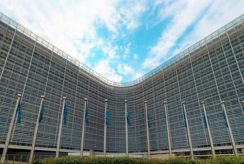Supporting the fundamental rights of citizens in the digital age
As the digital transformation gathers pace, it touches all aspects of people’s lives. It can improve quality of life and help drive economic growth, innovation, and sustainability. But it also brings new challenges for the fabric, security, and stability of societies. As a key directorate in the European Commission, the mission of the Directorate-General for Communications Networks, Content and Technology (DG Connect) is to develop and implement policies to make Europe fit for the digital age. From this pivotal viewpoint, it has long been observing how the accelerating digital transformation affects EU citizens. In particular, it is concerned to see people at the heart of the digital transformation and citizens having the same fundamental rights and protections online as they do offline.
A move to develop a European Declaration on Digital Rights and Principles
In 2021, DG Connect made a decisive move to develop and launch a European Declaration on Digital Rights and Principles for the Digital Decade. This would cover all relevant areas – among them inclusion, connectivity, skills, and security – as well as building on previous EU initiatives and drawing on the latest thinking from around the world. With the expectation that the declaration would be formally adopted by the EU’s Parliament and Council and inspire EU Member States as they shaped their own policies, the stakes were high.
A need for technical and strategic expertise delivered to a challenging timescale
To help it succeed in this major task, DG Connect turned to Wavestone. In a competitive tendering process with four other consortia, Wavestone, and its consortium, won the work. A key factor in this was Wavestone’s unique blend of expertise – an ability to understand both the technical detail of major digital threads, like cybersecurity, and also to bring strategic level business skills and big picture understanding to projects. The work planned to support the declaration’s development was ambitious. There were several major work streams, and available time meant that an initial six-month timescale had to be reduced to three months, with no reduction in scope. This brought some real challenges, in particular running workstreams in parallel to ensure on-time delivery.
Building the evidence base for the declaration
The EU Commission was determined to ensure the declaration’s relevance by creating a solid evidence base for its contents – both in terms of stakeholder views and by mapping similar initiatives around the world.
The EU Commission had held a wide-ranging public consultation and needed a varied set of responses to be analyzed and summarized, to bring out the key points to help shape the declaration. Here Wavestone used its management consulting strengths of gathering and distilling information
An initial view of the responses enabled the EU Commission and Wavestone to identify areas where there were gaps in the views gathered. This highlighted a need to seek further input from targeted groups – in particular people with disabilities, older people, consumer groups, people in rural communities, and digital rights advocates.
As a result, in parallel, Wavestone conducted a significant series of workshops and interviews with these stakeholders. With a broad audience that included advocates for particular issues, the views expressed were sometimes disparate. Here, Wavestone drew on its experience in consulting in corporate settings, where a range of different opinions is common, to ensure all stakeholders were properly heard – and to distill and synthesize the input into valuable information.
Important to getting the scope of the declaration right, was a desk analysis and literature review of initiatives and legislation in similar areas around the world. Wavestone’s strengths in research, and its global culture, enabled it to create a clear benchmarking of international approaches to digital rights and principles. This helped inform the declaration’s development and provided essential information for the European’s future international discussions on digital.
A successful declaration that will shape European and national policies in the years to come
Wavestone is especially satisfied to have helped the EU Commission generate this in a challenging timescale. What’s more, Wavestone was proud that the EU Commission was able to incorporate its report on the work, largely as delivered, into the official summary of stakeholder consultation and engagement activities.
On 26 January 2022, the EU Commission published its finalized European Declaration on Digital Rights and Principles for the Digital Decade, a document significantly shaped by the evidence base on which Wavestone helped.
It was confident that it had framed an enduring set of principles, and the launch was accompanied by high-level support and considerable press interest. Following negotiations with the European Parliament and Council, the three institutions signed at their highest level the Joint Declaration on Digital Rights and Principles for the Digital Decade, finalizing the EU’s work on its “digital DNA”, This took place on 15 December 2022, positioning the declaration to uphold people rights online and shape its international discussions in the years to come.
The European Commission accepts no responsibility with regard to the information on this article.






